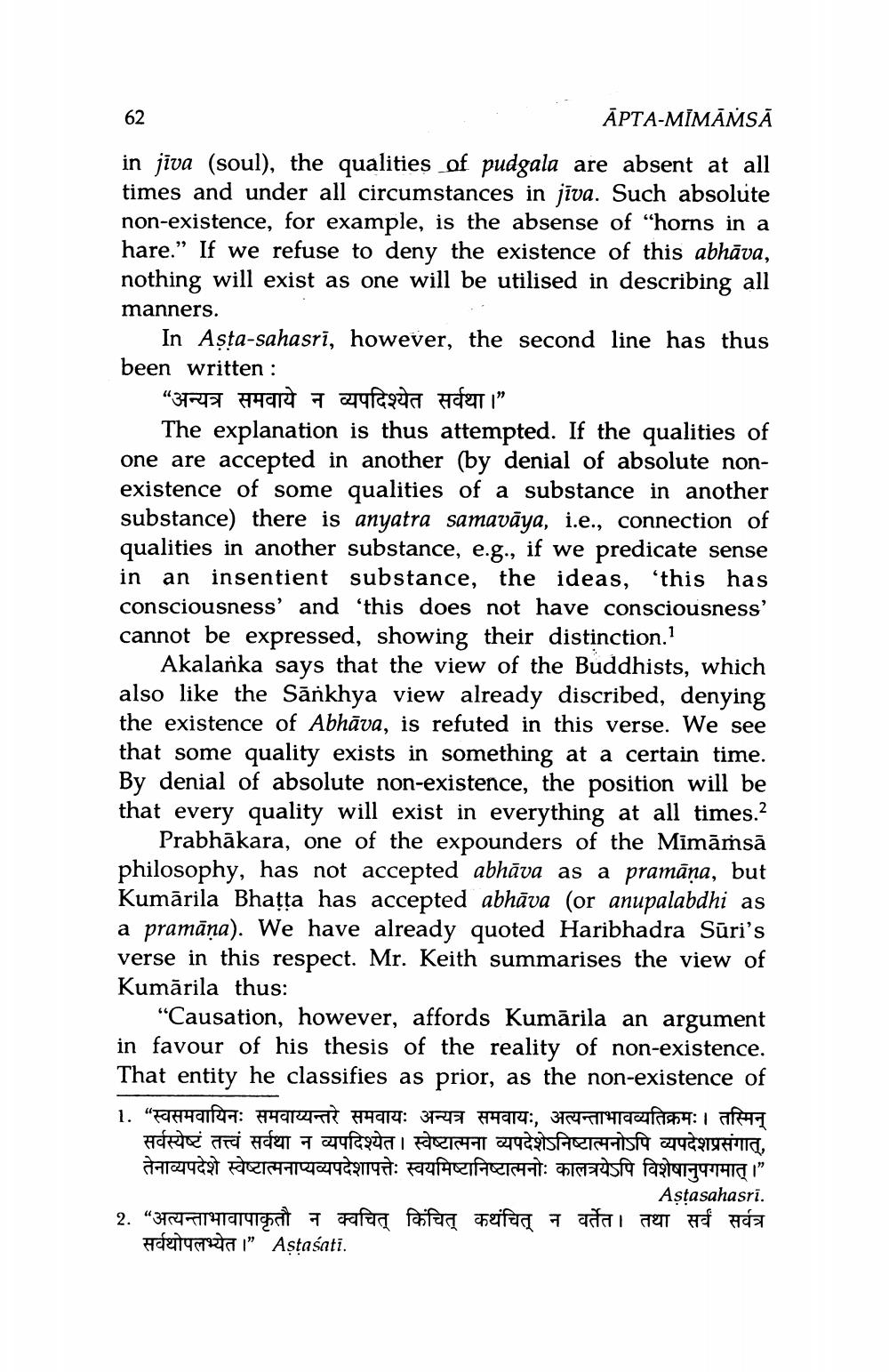________________
ĀPTA-MĪMĀMSĀ
in jiva (soul), the qualities of pudgala are absent at all times and under all circumstances in jīva. Such absolute non-existence, for example, is the absense of "horns in a hare." If we refuse to deny the existence of this abhāva, nothing will exist as one will be utilised in describing all
manners.
In Aṣṭa-sahasri, however, the second line has thus been written :
“ अन्यत्र समवाये न व्यपदिश्येत सर्वथा ।”
62
The explanation is thus attempted. If the qualities of one are accepted in another (by denial of absolute nonexistence of some qualities of a substance in another substance) there is anyatra samavāya, i.e., connection of qualities in another substance, e.g., if we predicate sense in an insentient substance, the ideas, 'this has consciousness' and 'this does not have consciousness' cannot be expressed, showing their distinction.1
Akalanka says that the view of the Buddhists, which also like the Sankhya view already discribed, denying the existence of Abhāva, is refuted in this verse. We see that some quality exists in something at a certain time. By denial of absolute non-existence, the position will be that every quality will exist in everything at all times.2
Prabhakara, one of the expounders of the Mimāmsā philosophy, has not accepted abhāva as a pramāṇa, but Kumārila Bhaṭṭa has accepted abhava (or anupalabdhi as a pramāņa). We have already quoted Haribhadra Sūri's verse in this respect. Mr. Keith summarises the view of Kumārila thus:
"Causation, however, affords Kumārila an argument in favour of his thesis of the reality of non-existence. That entity he classifies as prior, as the non-existence of 1. “स्वसमवायिनः समवाय्यन्तरे समवायः अन्यत्र समवायः, अत्यन्ताभावव्यतिक्रमः । तस्मिन् सर्वस्येष्टं तत्त्वं सर्वथा न व्यपदिश्येत । स्वेष्टात्मना व्यपदेशेऽनिष्टात्मनोऽपि व्यपदेशप्रसंगात्, तेनाव्यपदेशे स्वेष्टात्मनाप्यव्यपदेशापत्तेः स्वयमिष्टानिष्टात्मनोः कालत्रयेऽपि विशेषानुपगमात् । ” Aṣṭasahasri.
2. “अत्यन्ताभावापाकृतौ न क्वचित् किंचित् कथंचित् न वर्तेत । तथा सर्व सर्वत्र "Astasati.




